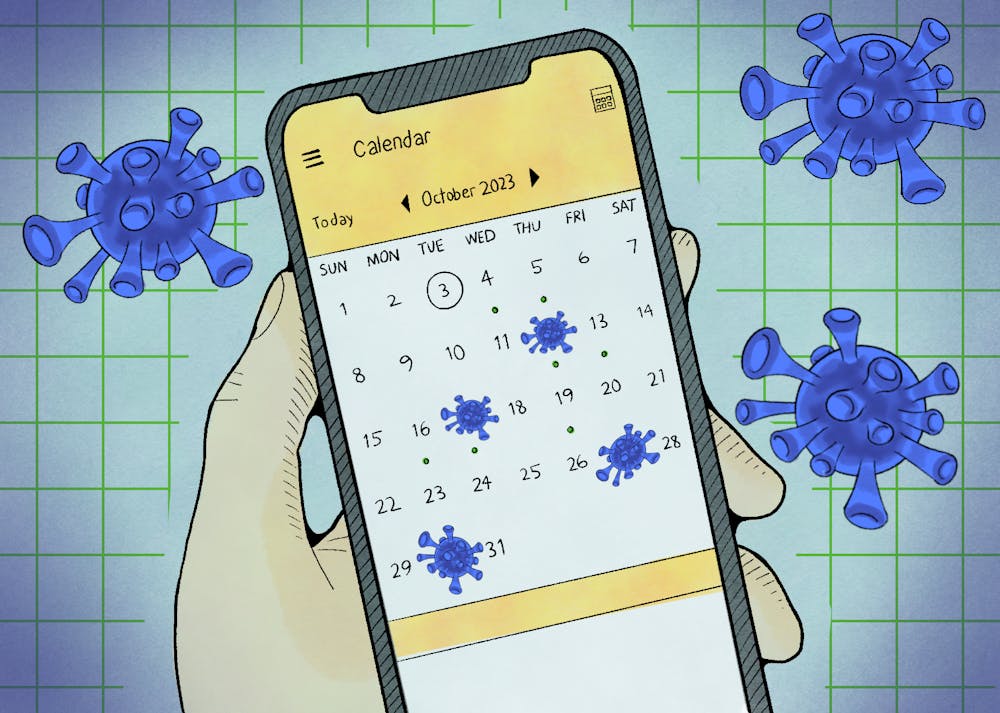Long COVID has emerged throughout to the COVID-19 pandemic, and ASU's Long-COVID ECHO explores the impacts of the condition and potential healthcare solutions.
ASU's Project ECHO, Extension for Community Healthcare Outcomes, is a general model of information sharing that can applied to many applications, including medical informatics.
Long COVID ECHO is at the forefront of addressing this challenge through its educational series focused on primary care providers. As society navigates the complexities of long COVID, programs like ASU's ECHO Initiative are critical to understanding the condition's significance and possible treatments.
Long COVID is a condition characterized by persistent and diverse symptoms that affect a significant portion of the population.
"The CDC has said about 7% of the United States population has experienced long COVID in some form," MD & Subject Matter Expert on the Hub Team Dr. Charlton Wilson said.
Diagnosing accurately is one of the main obstacles concerning long COVID since the symptoms can resemble many other diseases.
"There is no specific diagnostic test to know whether a patient's presenting with fatigue or brain fog from Long COVID, versus maybe dementia associated with old age or with some other condition." Dr. Ed Paul, MD & Subject Matter Expert on the Hub Team, said.
Diversity of expertise and perspectives is invaluable in addressing complex challenges, and Project ECHO emerges as a concrete solution. They are dedicated to bolstering the abilities of primary healthcare providers, offering a tangible pathway toward improved healthcare delivery and outcomes.
"If we can, through our work, increase the capacity of primary care providers, nurses, doctors, physician assistants, pharmacists and psychologists... many more of those people who are experienced in it can get the help that they need and therefore have a public impact," Dr. Wilson said.
Despite doctors' specialties, this disease must be attacked from all angles, so diversity is critical.
"I was going to say we have recruited a lot of specialists from all sorts of areas, and they each have their own perspectives and things that they've seen that they've been able to bring in." Clinic Coordinator of ECHO Autumn Young said.
Long COVID is a disease that can occur to anyone who has experienced COVID. Therefore, the inclusion of diverse communities and people from all socioeconomic levels is critical.
"We purposely included and paid attention to diversity in our state, including having experts from rural Arizona, including tribal nations," Dr. Paul said.
The program's mission naturally includes a profound commitment to making medical knowledge universally accessible.
"The whole mission is to democratize medical knowledge and amplify capacity to get best practice care to underserved people all over the world," Kaitlyn Felix, Program Manager of Project ECHO, said.
Given the large number of cases and the widespread nature of the condition, it becomes impractical for specialists in particular regions to manage the entire caseload. To combat this, the Project ECHO model's primary strategy includes telementoring, a two-way communication resource with accessibility at the forefront, emphasizing that knowledge-sharing is a mutual process.
"It's a two-way learning street," Felix said. "We have our subject matter experts in the hub team that also want participation from our attendees to have that two-way street, moving knowledge, not people."
Dr. Wilson believes that the experts and team can help "educate and empower" local primary care teams through ECHO.
Looking ahead, the ECHO Initiative plans to continue its efforts with new educational materials. It acknowledges that long COVID is an ongoing issue, and its commitment to disseminating knowledge remains steadfast. Young says the series of seminars start in January but knows that long COVID will still be prominent at that time.
After the January cohort, the future of the program is uncertain.
Long COVID lingers as a poignant reminder of the pandemic's impact. Its enduring presence calls for a shared understanding and the harmony of expertise and patient experience. ASU's ECHO Initiative is a beacon of proactive engagement with this complex issue.
Edited by River Graziano, Walker Smith and Shane Brennan
Reach the reporter at dmanatou@asu.edu.
Like The State Press on Facebook and follow @statepress on X.
Dimitra is a junior studying biomedical engineering and physics. This is her second semester with The State Press. She has also worked as a research assistant in Kirian Lab.




